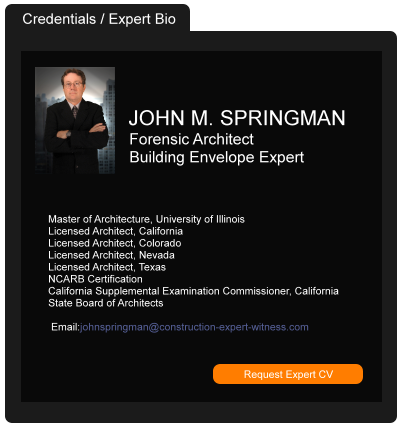Wilke Fleury and Attorneys Recognized as ‘Best Law Firm’ and ‘Best Lawyers’ by U.S. News!
November 08, 2017 —
Wilke FleuryWilke Fleury is pleased to announce its inclusion in the 2018 editions of ‘Best Law Firms’ in America and ‘Best Lawyers’ in America. The two award categories reflect excellence in legal service – firms included in the 2018 “Best Law Firms” list are recognized for professional excellence by clients and peers and Best Lawyers® has become universally regarded as the definitive guide to legal excellence.
Wilke Fleury Recognized in U.S. News 2018 Edition ‘Best Law Firms’ in America
Wilke Fleury is honored to be recognized among the nation’s Best Law Firms by U.S. News – Best Lawyers.
“Firms included in the 2018 “Best Law Firms” list are recognized for professional excellence with persistently impressive ratings from clients and peers. Achieving a tiered ranking signals a unique combination of quality law practice and breadth of legal expertise.”
Wilke Fleury Attorneys Elected to U.S. News 2018 Edition ‘Best Lawyers’ in America
Congratulations to
David A. Frenznick and
Ernest James Krtil on their election to the 2018 Edition ‘Best Lawyers in America.’
Read the court decisionRead the full story...Reprinted courtesy of
Wilke Fleury
Another Law Will Increase Construction Costs in New York
May 29, 2023 —
Bill Wilson - Construction Law ZoneNew York recently enacted legislation known as Carlos’ Law, which increases penalties for corporate liability for the death of, or serious injury to, an employee. The bill, S.621B / A.4947B, was named after Carlos Moncayo, a construction worker killed in a trench collapse on a New York City construction project. Moncayo’s employer repeatedly flouted safety rules and ignored warnings of dangerous conditions on its construction site before failing to properly support the trench that collapsed and killed Moncayo. Moncayo’s employer was convicted for his death, but the penalty was light. The company was sentenced to pay only $10,000, the maximum penalty at the time for any company convicted of a felony in New York State. The legislature responded with Carlos’ Law, which increases accountability for “employers,” and expands the scope of “employees” covered.
The corporate criminal law, NY Penal § 20.20(2)(c)(iv), imposes liability on an employer when “the conduct constituting the offense is engaged in by an agent of the corporation while acting within the scope of his employment and on behalf of the corporation, and the offense is . . . in relation to a crime involving the death or serious physical injury of an employee where the corporation acted negligently, recklessly, intentionally, or knowingly.” An “agent” of an employer is any “director, officer or employee of a corporation, or any other person who is authorized to act on behalf of the corporation.” § 20.20(a). An “employee” now includes any person providing labor or services for remuneration for a private entity or business within New York State without regard to an individual’s immigration status, and includes part-time workers, independent contractors, apprentices, day laborers and other workers. § 10.00 (22). The penalties for criminal corporate liability for the death or serious injury of an employee now include maximums of $500,000 when centered on a felony, and $300,000 when centered on a misdemeanor. § 80.10(1)(a) and (b).
Read the court decisionRead the full story...Reprinted courtesy of
Bill Wilson, Robinson & Cole LLPMr. Wilson may be contacted at
wwilson@rc.com
Resolving Subcontractor Disputes with Pass-Through Claims and Liquidation Agreements
May 13, 2024 —
Stephanie Cooksey - Peckar & Abramson, P.C.Imagine a project where you are unable to reach final completion due to an unresolved subcontractor claim. If the project owner is responsible for the claim, and both the owner and subcontractor are entrenched in their positions, how would you resolve this dispute?
The default option is a three-party lawsuit where the subcontractor sues you in your capacity as general contractor. By denying the claim, you bring the owner into the lawsuit as a liable party to the subcontractor’s claim. This option is efficient from the judicial system’s perspective, as it means one lawsuit instead of two. The subcontractor cannot sue the owner since the two have no contract between them. Thus, the subcontractor’s recourse is limited to suing the contractor. In the three-party lawsuit, you argue that if the subcontractor prevails in its claim against you, the owner is liable. If the owner successfully defends against the claim, the subcontractor takes nothing.
Putting judicial economy aside, it may not make economic sense for contractors to have a lawyer involved in litigating a case where they have no skin in the game. Fortunately, there is a better option than the three-party lawsuit on multi-party construction projects.
Read the court decisionRead the full story...Reprinted courtesy of
Stephanie Cooksey, Peckar & Abramson, P.C.Ms. Cooksey may be contacted at
scooksey@pecklaw.com
Another Reminder that Your Construction Contract is Only as Good as Those Signing It
December 17, 2024 —
Christopher G. Hill - Construction Law MusingsHere at Construction Law Musings, we beat the constant drum that “
the contract is king” and “draft a
good and well-worded construction contract” consistently. As a
Virginia construction attorney, I stand by these statements and fully endorse a well-written construction contract. Such a contract will set expectations and
provide the rules for your deal (particularly in the commercial context). Without this solid foundation (yes, I see the potential construction pun), when
there are issues on the job site, there will be no baseline for how to resolve those issues.
That said, I am also reminded on an almost daily basis that humans interact with these contracts. People negotiate the contracts and are the main forces that drive the success (or failure) of the construction project. Money is involved (often a lot of it) and there can at times be temptations to try and squeeze one last dollar out of the job despite what the contract says. Even the strongest contract cannot act as real-time protection against one party that refuses to comply with the contract and its performance or payment terms.
Read the court decisionRead the full story...Reprinted courtesy of
The Law Office of Christopher G. HillMr. Hill may be contacted at
chrisghill@constructionlawva.com
How to Build Climate Change-Resilient Infrastructure
July 20, 2020 —
Aarni Heiskanen - AEC BusinessOhio University has released a guide titled, An Engineer’s Guide to Building Climate Change-Resilient Infrastructure. It was created for engineers, environmentalists, climate change communities, and construction organizations who are looking to share information about the importance of building cities that are able to fight growing climate threats.
Aarni Heiskanen, AEC Business
Mr. Heiskanen may be contacted at aec-business@aepartners.fi
Read the full story... Read the court decisionRead the full story...Reprinted courtesy of
Chicago Debt Document Says $8.5B O'Hare Revamp May Be Delayed
October 26, 2020 —
Jeff Yoders - Engineering News-RecordThe $8.5-billion revamp of O'Hare International Airport may have to be delayed because of COVID-19 related economic impacts, according to documents included in paperwork to refinance existing airport debt. The city forcefully disagreed with that summation, however, and says the project will move forward and is not endangered.
Reprinted courtesy of
Jeff Yoders, Engineering News-Record
Mr. Yoders may be contacted at yodersj@enr.com
Read the full story... Read the court decisionRead the full story...Reprinted courtesy of
CA Senate Report States Caltrans ‘Gagged and Banished’ its Critics
August 06, 2014 —
Beverley BevenFlorez-CDJ STAFFAccording to the Sacramento Bee, the California Senate’s latest report said that “at least nine top experts for the new $6.5 billion San Francisco-Oakland Bay Bridge” were “’gagged and banished’” after complaining “about substandard work by the Shanghai, China, firm that built much of the span.”
According to the report, reported by the Sacramento Bee, Tony Anziano, Caltrans’ chief executive of the project, “removed or demoted quality-assurance and fabrication engineers who tried to force the contractor to fix cracked roadway welds.”
The report did not evaluate the bridge’s quality or safety, however, it “called for greater openness in large construction projects, a review of the weld problems by independent experts, and an investigation of allegations that engineering decisions were made by non-engineers.”
Read the court decisionRead the full story...Reprinted courtesy of
Contractors Can No Longer Make Roof Repairs Following Their Own Inspections
July 02, 2018 —
Jason Feld & Alex Chazen - Kahana & Feld LLPCalifornia law mandates that any person who conducts roof inspections for a fee can no longer effectuate the actual repairs to the same property. Effective January 1, 2018, Business & Professions Code Section 7197 (Unfair Business Practices) deems it to be an unfair business practice for a home inspector who charges a homeowner a monetary fee for inspecting the property, to perform or offer to perform additional repairs due to the inherent financial interest and conflict raised by identifying alleged defects necessitating repairs. The new law is a result of California AB 1357, which was signed into law on October 5, 2017. The goal of the new law is to disincentivize a roof inspector from creating a report for the sole purpose of obtaining a bid to perform those documented repairs. The roof contractor can perform repairs identified in their report only after a twelve month “cooling period” which provides the homeowner an opportunity to obtain multiple bids/estimates for repairs based upon the inspector’s report. The new law also discourages home inspectors from providing a list of contractors who provide monetary referral fees back to the home inspector upon receiving repair work from the homeowner based exclusively on the home inspection report.
The California Business & Professions Code Section 7195(a)(1) defines a “home inspection” as a “non-invasive, physical examination, performed for a fee in connection with the transfer…of the real property…or essential components of the residential dwelling.” Home inspection includes “any consultation regarding the property that is represented to be a home inspection or any confusingly similar term.” Business & Professions Code section 7195(a)(2) further defines a “home inspection” as including energy efficiency and solar. A “home inspection report” is a written report prepared for a fee issued after an inspection. Business & Professions Code section 7195(c). It is noted that a home inspector does not have to be a licensed architect, professional engineer, or general contractor with a Class “B” license issued by the California Contractors State License Board, but “it is the duty of a home inspector who is not licensed as a general contractor, structural pest control operator, or architect, or registered as a professional engineer to conduct a home inspection with the degree of care that a reasonably prudent home inspector would exercise. Business & Professions Code section 7196.
Reprinted courtesy of
Jason Feld, Kahana & Feld LLP and
Alex Chazen, Kahana & Feld LLP
Mr. Feld may be contacted at jfeld@kahanalaw.com
Mr. Chazen may be contacted at achazen@kahanafeld.com
Read the court decisionRead the full story...Reprinted courtesy of


































































